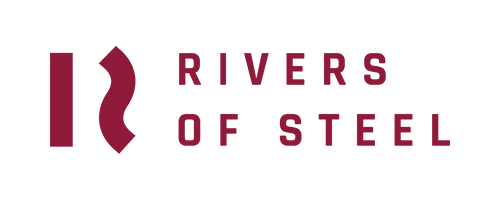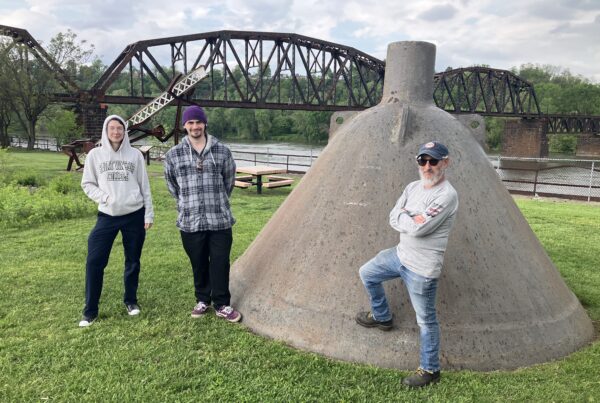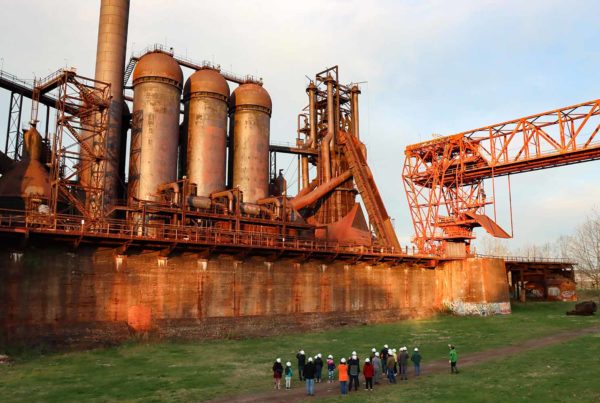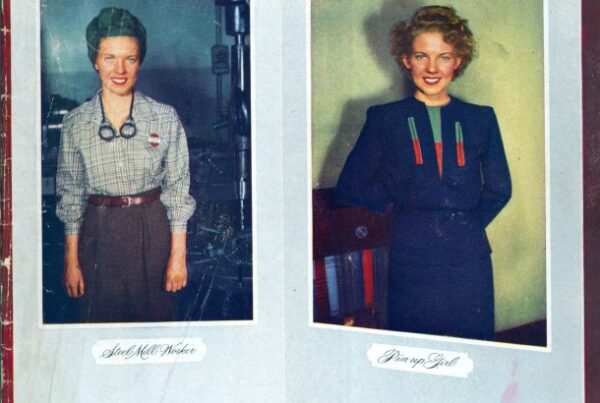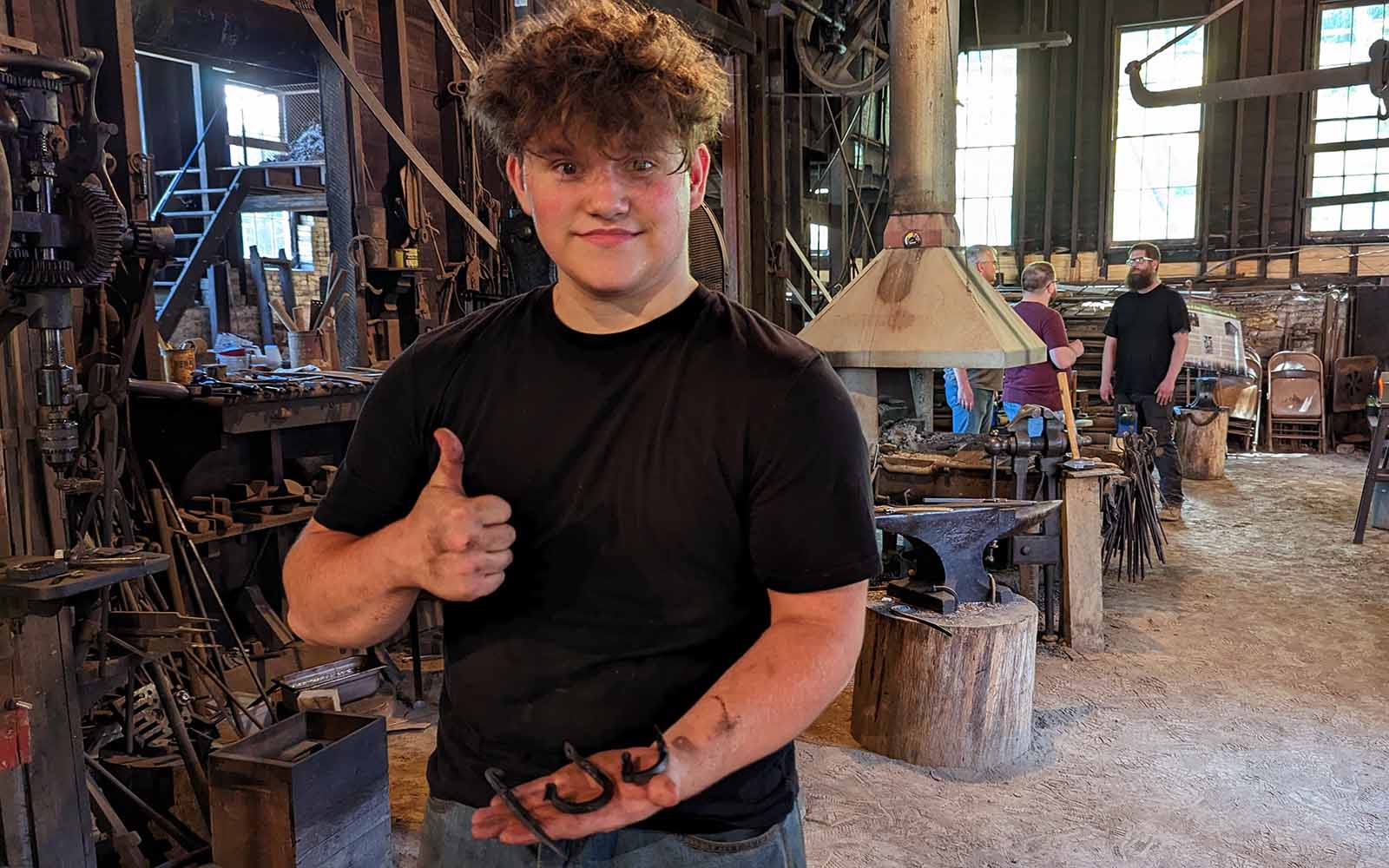
2023’s summer intern, Enrico DePetris, gives a thumbs-up after his first blacksmithing workshop.
The William Miller Summer Internship at the W.A. Young & Sons Foundry and Machine Shop
By Lynne Squilla, Contributing Writer
The future of our region’s industrial history will be in the hands of the next generation.
That is a reality Rivers of Steel understands. Between its workforce development initiatives, public tours, demonstrations, and educational programs, Rivers of Steel is actively engaged in making sure that coming generations will be both interested and prepared for the challenges of preservation and interpretation at all of its historic sites. One of the most recent efforts is a unique internship at the W.A. Young & Sons Foundry and Machine Shop in Greene County, a site Rivers of Steel has overseen since 2008.
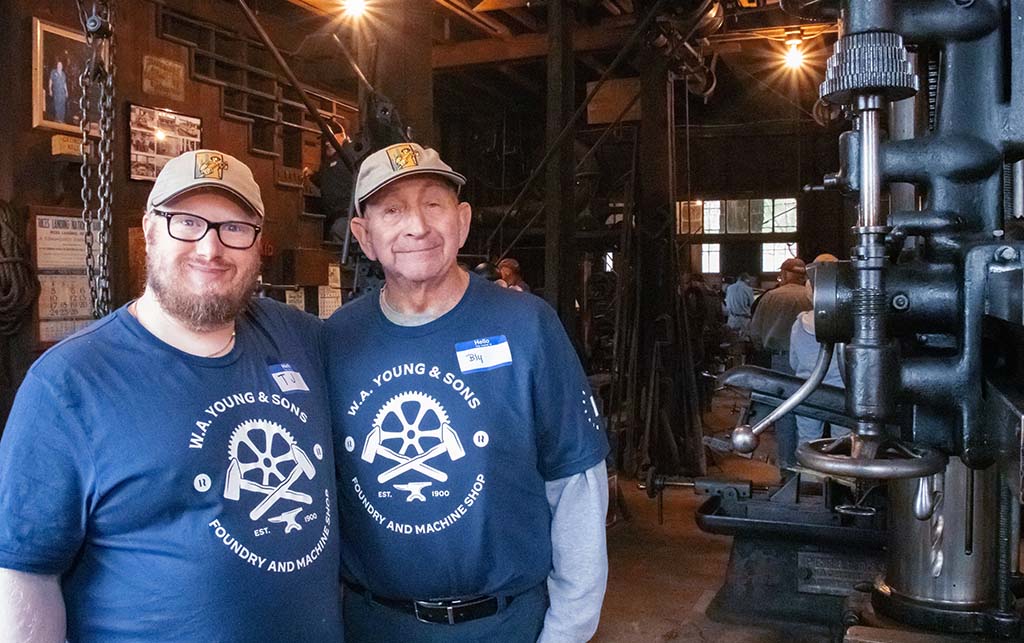
T.J. Porfeli and George “Bly” Blystone, who help run and care for the W.A. Young & Sons Foundry and Machine Shop.
“I am currently the youngest worker here,” says 42-year-old T.J. Porfeli, historic site coordinator for Young & Sons, which received National Historic Landmark status in 2017. “It was always my goal to bring younger generations in here to learn the historical aspects of this shop. If that means a 22-year-old takes my place who knows everything about it—that’s what I’d like to see!”
Porfeli’s vision got a boost in 2022 through a chance encounter with a local businessman, William Miller, who visited the machine shop for a tour.
“I was just telling him at one point that we’d like to keep the place alive by teaching younger people about it,” explains Porfeli. “This really struck a chord with him, and he said he also wants the place to continue to be here. So he asked what we hoped to accomplish and how he could help.”
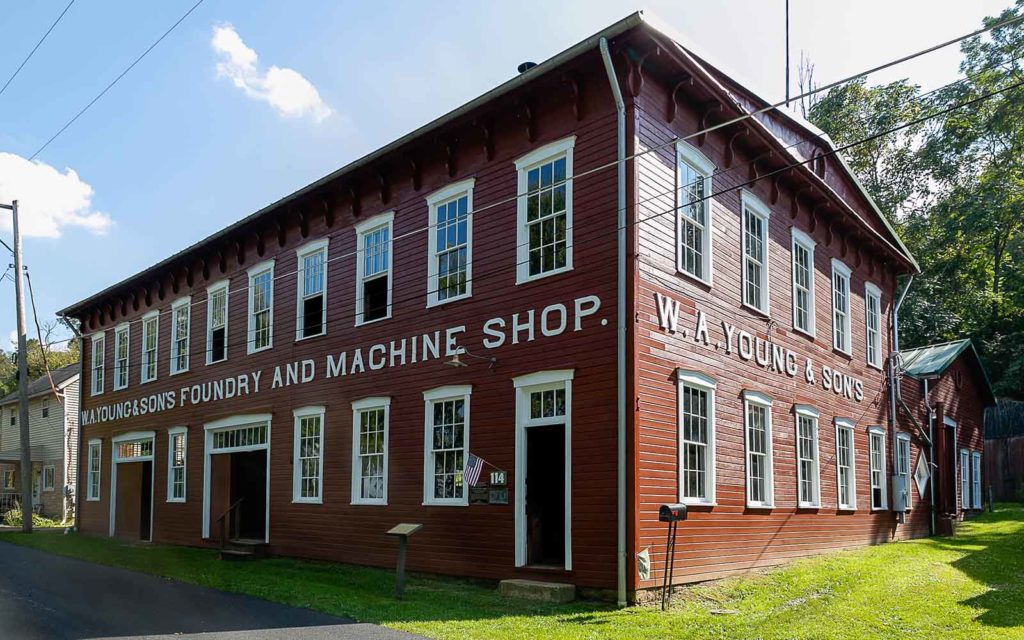
The exterior of the W.A. Young & Sons Foundry and Machine Shop, Rices Landing, PA. Photo by Richard Kelly Photography.
Soon after, Miller reached out to Rivers of Steel to brainstorm, and the result was a $50,000 endowment for an ongoing internship program to train Greene County youths in the machines, operations, history, and programs surrounding the foundry and machine shop.
Ron Baraff, Rivers of Steel’s director of historic resources and facilities recalled, “When Mr. Miller approached us about setting up a scholarship at the machine shop, we were ecstatic. He saw this as an opportunity to give back to the community in which he grew up and a fantastic opportunity to bring a new generation into the story—and we are so thankful for his generous donation.”
2023 saw the first student awarded the aptly named William Miller Summer Internship at the W.A. Young & Sons Foundry and Machine Shop. Enrico DePetris, who goes by Ricky, was a 16-year-old student learning welding at Greene County Career & Technology Center, and he took the opportunity with energy and enthusiasm. Porfeli recalled a remarkable coincidence that occurred toward the end of the summer internship: “In August, Ricky was shadowing the tour guide and keeping an eye on the site. A guy shows up wanting a tour, so Ricky started explaining the machines and the history. And it was Bill Miller himself that wanted the tour! He got to see right there the fruits of his contribution.”
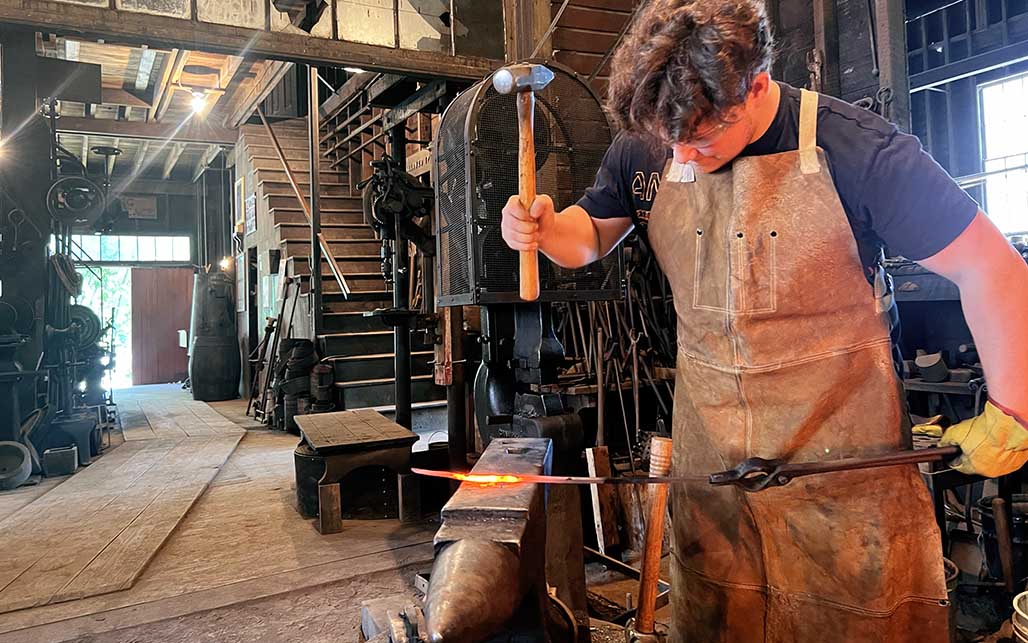
Ricky DePetris at the forge on a recent Sunday afternoon.
Porfeli continued, “I always said, if an intern walks in with the same feeling I have for this place, then that’s really what we’re looking for.”
Ricky remains involved at the site, returning to help with tours and special events.
The W.A. Young & Sons shop is located in the historic district of Rices Landing on the Monongahela River. It is a nearly 124-year-old facility where time stood still and its vintage machines remained intact. Its original owners, the Young family, and their workers kept the twenty-five belt-driven machines, such as lathes, drill presses, milling machines, and pipe and bolt threaders, running smoothly for decades, with few updates except replacing the power source, from steam to Bessemer gas to electricity. Currently, it’s powered by a tractor engine. The building also houses a small foundry with a blacksmithing forge.
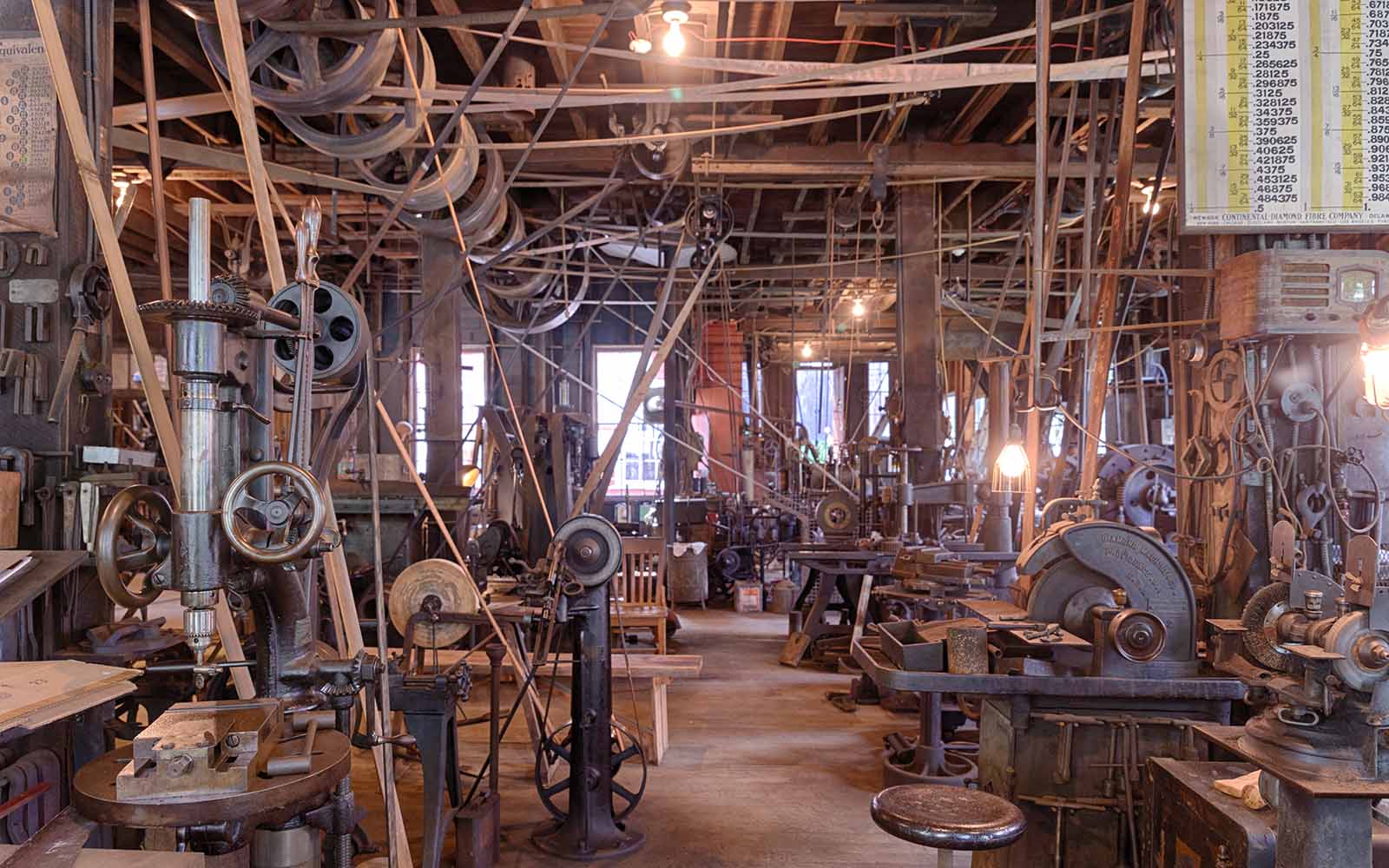
The interior of the front shop, featuring the machines and the line shaft system. Image by Richard Kelly Photography.
Over the years, the shop’s talented machinists and pattern makers crafted parts to repair local factory and mine equipment as well as pieces for the paddleboats and steamboats that once docked along the banks of the nearby Monongahela River. When the doors were closed in 1965, local residents and volunteers watched over the site. For a while, it was stewarded by the Greene County Historical Society—that is, until Rivers of Steel took charge of it in 2008 and began securing funding for improvements. Restorations to the building and refurbishments to the machinery have since occurred. Regular tours and public events, like the annual Hammer-In Festival that features area blacksmiths, are becoming increasingly popular.
The site is a true industrial heritage gem and the only one of its kind in the nation, so it also provides an unmatched training ground for students who want to learn more about traditional machining, metal casting, and blacksmithing.
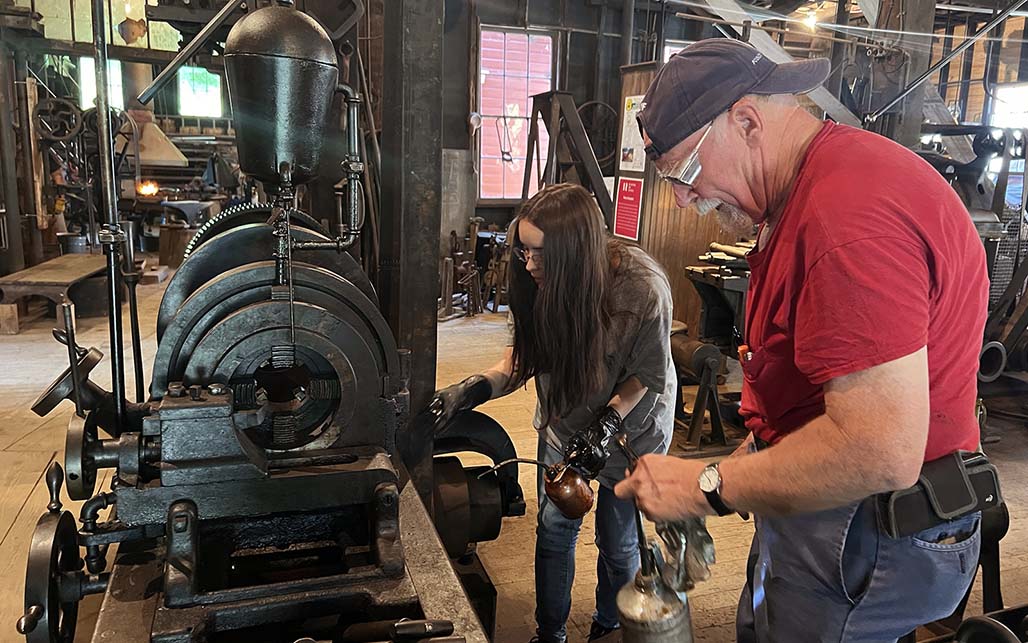
Kiera, the 2024 summer intern, works on a machine with Steve, a dedicated volunteer at W.A. Young & Sons.
This year’s summer intern, fifteen-year-old Kiera, is learning to become a machinist in trade school. Porfeli was impressed by her intense interest in everything: “Her very first day, she watched a volunteer oiling one of the machines and said, ‘Can I do that?’ Then she jumped in to learn how to cut and help install a damaged machine belt.”
Among the variety of machines these interns become familiar with are three different lathes, a milling machine, a shaper, a planer, a radial-arm drill press, belt-driven hacksaws, and a keyway cutter. The internship program teaches what each of these machines was used for and the kinds of parts they made. Interns also assist during the blacksmithing and small aluminum-casting demonstrations. Kiera will suit up and help pour molten aluminum, as well as learn how to hammer an iron hook, or hairpin.
Equally important to learning the nuts and bolts of the time-honored equipment and metalworking skills is the ability to tell the stories—to interact with the public and make history come alive.
Rivers of Steel’s director of education, Suzi Bloom, helped refine the application process and got the word out about the scholarship to high schools, trade-training centers, and youth groups, such as the Boy / Girl Scouts and 4-H clubs, across Greene County.
She described the additional benefits of this internship: “There’s a big focus now on career readiness, and this is a great opportunity for students to get those kinds of hands-on skills. That’s something not always thought of when you hear ‘preservation internship.’ They also get to do the tours, learning those ‘soft skills,’ like how to greet people, face them when you’re talking, projecting your voice in a room, and how to break down and explain the complex machines to anyone who walks in. Those are hard-to-get skills. Public speaking can be nerve wracking, so this is a nice small environment to learn those things.”
To apply for the internship, students are asked to share their personal interest in machinery and historic preservation, to describe why local history is important to them, and to relate how what they learn in this internship could benefit their education.
“It’s a good resume-builder,” said Bloom. “I have my position because someone gave me an opportunity to work and learn. It is important for us to reach into this rural community, which may not have as many experiences available for young people. It’s also important for them to learn about the ingenuity at W.A. Young & Sons. Some of what was done there was genius. There were no hardware stores to run to, so they had to make parts for whatever needed to be repaired.”
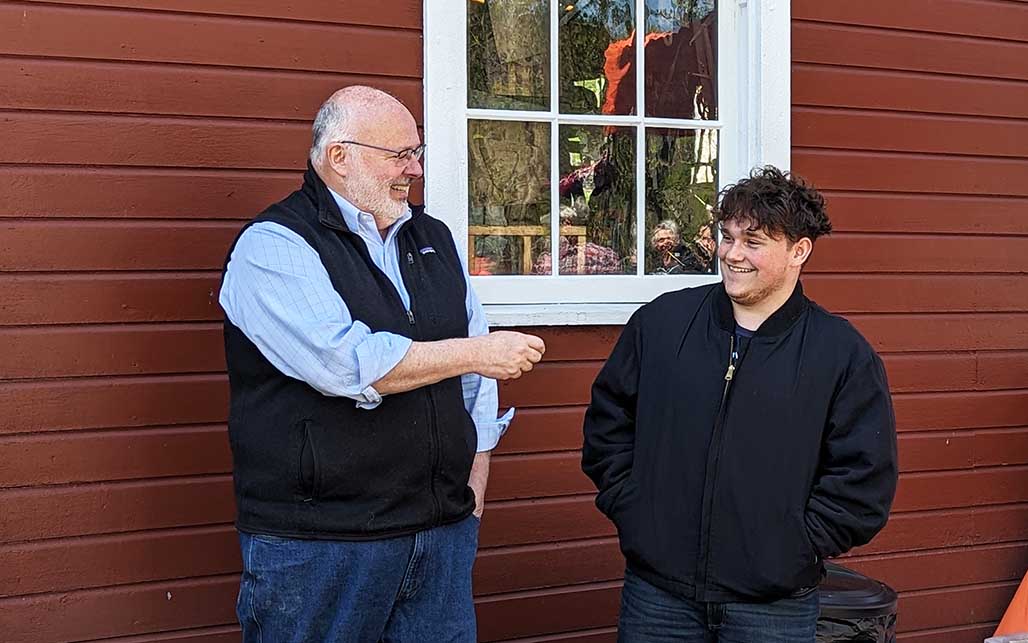
Rivers of Steel’s CEO August Carlino recognized Ricky DePetris at the 2024 Hammer-In Festival.
Porfeli is involved on a daily basis with the interns, and he believes that by the end of their internship, they will understand even more strongly how important it is to save these sites and traditional skills. “I want the legacy to be for future generations to come experience this site—there is not another like it without any modern-day machines at all. It was an art form what people did here. It will be lost—it’s going to be gone if new generations are not engaged to learn about it, care about it, and share the passion of it.”
Ron Baraff added, “We are always looking for ways to get people excited about our region and its rich history, especially at such a gem as the W.A. Young & Sons Foundry and Machine Shop. Through projects such as the Miller internship, I feel confident that we can move the site into the future in capable and motivated hands!”

Lynne Squilla is a skilled and creative storyteller. She honed her craft as a writer and producer / director of original scripts, documentaries, articles, web content, stage, and other live presentations. While her work has taken her across the globe, she’s rooted in the Mt. Washington neighborhood of Pittsburgh, and has a passion for sharing stories about our region’s past.
Check out Lynne’s previous article on Rivers of Steel’s new workforce development program.
